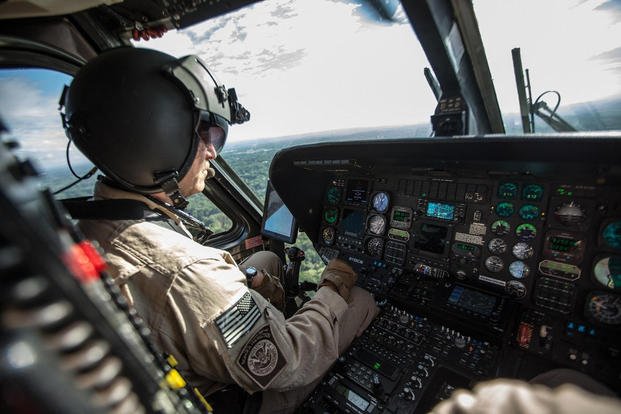The U.S. Border Patrol offers a fast-paced, challenging law enforcement career in which fluency in Spanish is a definite advantage. Now part of the Department of Homeland Security, the Border Patrol is responsible for patrolling all 6,000 miles of the U.S. land borders and 2,000 miles of coast around Florida and Puerto Rico.
Its greatest focus, however, is on the border with Mexico, where economic conditions in that country and elsewhere have increased the pressure and violence of illegal immigration and smuggling.
Despite the dangers, Héctor Escamilla and Ramón Rojas, two Mexican-American Border Patrol workers, speak passionately about their jobs. Escamilla, a 16-year veteran of the agency and now special operations supervisor in McAllen, Texas, says he was initially drawn by the opportunity to serve on "the front line of national defense" and got hooked on the ruggedness of what he calls "frontier-type work."

But to launch a Border Patrol career, you'll need to take some practical steps to prepare for the challenges ahead.
How to Join
Today, recruits who pass the entrance exam are sent to the Border Patrol Academy, either in Brunswick, Georgia, or the satellite facility in Charleston, South Carolina, where they undergo a 21-week program that focuses on military discipline with training in law, firearms, driving (a big part of the job in rough terrain) and Spanish, which is required of all agents.
While in the academy, the new agent receives full base pay at the GS-5 level, starting at around $52,583 per year, with step increases over time. After seven months, the new agent takes an exam to move up to GS-7, a year later to GS-9 and a year after that to GS-11, where the base salary is generally $83,054 or more, depending on the area and the individual's step within each grade. Bonuses and overtime pay can bring that up considerably.
An insider's perspective might help you decide whether the risks and rewards balance out.
A Day on the Job
"Usually you're with a partner at night, but in the daytime, you'll go out alone. And people will pop rounds at you from a distance," Escamilla said with a laugh. But, he says, the situation is worse in Tucson, Arizona.
Rojas, training manager for the Border Patrol in Tucson, points out that it's "the roughest sector in the Border Patrol now."
"San Diego has pretty much shut down" due to intense patrolling, thus diverting activity to Arizona, says Rojas. Agents patrol their 280 miles of the desert border on horseback, in Suburbans, on dirt bikes and, in urban areas, bicycles.
"We get armed encounters seven or eight times out of 10," Rojas said. That means that the agents find a weapon, whether a knife or a gun.
"We find 2,000- or 3,000-pound loads of marijuana regularly," Escamilla said, as well as other merchandise. But the biggest smuggling business is people. Though most are Mexicans and Central Americans, agents also find large numbers of Middle Eastern people and Asians trying to get across.
"It's not uncommon to come onto a group of 20 to 30 people," he said. "Ninety percent are humble people, just trying to make a better life for themselves." But the others include drug smugglers and other criminals, sometimes in fake Mexican federal police uniforms, and they may be armed.
Cultural Issues
How do they feel about stopping so many Hispanics/Latinos who are just trying to find a better life?
Escamilla thinks he is doing them a service by helping them safely return to their home country.
Rojas agrees. "How I rationalize the feeling," he says, is that he is protecting "a lot of people who get jobs [in the U.S.] and don't get paid. I see it as helping them out."
Is It Worth It?
A Border Patrol agent asks himself every morning, "Am I going to make it today?" It's a question Escamilla embraces. "Every day out in the field is an adventure. It's a fun job," he said.
For more information on careers in the United States Border Patrol, visit the U.S. Customs & Border Protection website.
Find the Right Veteran Job
Whether you want to polish your resume, find veteran job fairs in your area or connect with employers looking to hire veterans, Military.com can help. Subscribe to Military.com to have job postings, guides and advice, and more delivered directly to your inbox.











